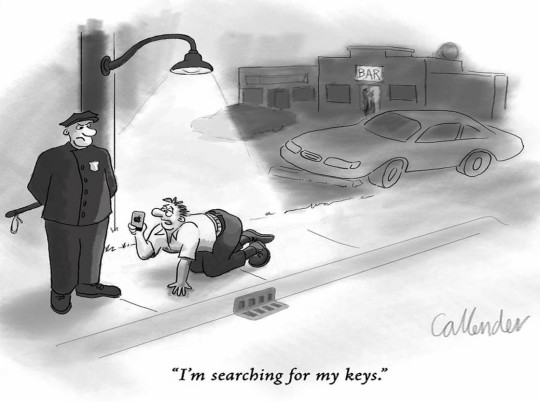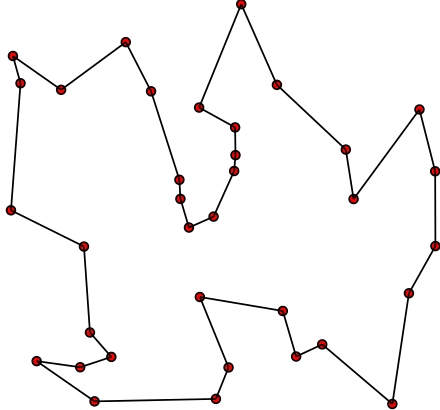#i havent tested these in game yet so im very excited to see how invisible those fruits are at any distance 😭
Text

i'm waiting for mods to get updated for the new patch/EP so you get a sims4studio screenshot for my cc wip :P bagged fruit earrings!!
#cc wip#i havent tested these in game yet so im very excited to see how invisible those fruits are at any distance 😭#i've had a Bad Health Week and slept for 16 hours and then got a second wind at 6 pm yesterday to make this lmfao
24 notes
·
View notes
Text
The Future You That You Least Suspect
The other night my teenage boys asked me what was on my mind (likely looking for material to make fun of me. Just kidding, they’re thoughtful kids).
Instead of trying to “kid proof” my thoughts or rush the conversation, I wrote them this letter. First, to explain that I’m consumed by how we think about and where we look for answers to the biggest questions of our time (listed below), and second, to propose an alternative way of finding answers (hint: I found inspiration in an amoeba).
How are we going to address climate change before it creates global chaos?
What jobs will be available for my kids when they finish school? What should they study?
Over the next few decades, how will we re-train ourselves fast enough — again and again — to remain employed and useful as technology becomes more capable?
Can the human race cooperate well enough to solve our biggest problems or will the future simply overwhelm us?
Most importantly, where do we look to find answers to these questions?
Hopefully I didn’t ruin the possibility that my kids will ever again ask me what’s on my mind 🙂
##
Boys,
There is an old joke where a man is looking for his keys under a street light. Another person walks by and inquires, “Sir, are you certain you lost your keys here?”
“No” the man replies, “I lost them across the street.”
Confused, the stranger says, “Then why are you looking here?”
The man responded, “The light is much brighter here!”

Credit
This comic is as humorous as it is true. All too often, we each do this when we’re trying to solve something. It’s where our brains naturally take us first.
Our imaginations are constrained to the familiar (under the light), so we have a hard time finding answers to difficult questions and problems because the answers often lie in the unknown (or in the comic above, the darkness). Staying in the light is natural, easy, and intuitive, but this limits our discovery potential.
I. How to look in the dark?
History can give us some hints about how others found interesting things in the dark. For example, we discovered that:
the sun is the center of our planetary swarm
the earth is round
the physical world is a bunch of tiny, uncertain pieces governed by quantum physics
Before these became accepted truths, they were very difficult to imagine. This is part because they are non-obvious and also counter-intuitive to our everyday experience.
It’s also because we can’t know what is not known, which means we’re blind to what is yet to be discovered. Don’t believe me? Try to think of something you don’t already know. It’s impossible! That is, until you know it, and then it’s obvious.
Going back to the 5th question, how and where can we look today to find new unknowns (the dark) that help us solve our biggest problems? Where are today’s insights that are equivalent to the sun is the center of our planetary swarm?
I think the most exciting and consequential place to explore is not looking outside ourselves, but looking inside; in our own minds. This is where I see the most fruitful answers to the questions about your future and mine.
What if the next reality busting revolution happened to our very reality and consciousness? And if that happened, could the future of being human be entirely unrecognizable from our vantage point today? I hope so, because the answers to our challenges don’t appear under the lights we have turned on so far.
You’re probably thinking, c’mon Dad, this is crazy talk.
Well, it’s happened before.
II. Thanks Homo Erectus, We’ll Take it From Here
Our ancestor Homo erectus lived two million years ago and wasn’t equipped with our kinds of languages, abstractions, or technology. Homo erectus was possibly an inflexible learner as evidenced by the fact that they made the same axe for over 1 million years.
Imagine trying to explain to Homo erectus a complex phenomena of our modern day society, such as the stock market. You’d have to explain capitalism, economics, math, money, computers, and corporations — after extensive language training and the inevitable discussion of new axe design possibilities (of course, trying not to offend).
The supporting technological, cultural, and legal layers that enable the stock market to exist are the engines and evidence of our prosperity. It’s taken us thousands of years to develop this collective intellectual complexity. The point is, our brains are incredibly capable of evolving and adapting to new and more complicated things.
That our cognition evolved from Homo erectus demonstrates that we have radically evolved before.
III. Amoeba, You’re So Smart!

A few months ago, Japanese researchers demonstrated that an amoeba, a single-celled organism, was able to find near optimal solutions to the following question:
Given a list of cities and the distances between each pair of cities, what is the shortest possible route a salesperson could take that visits each city only once and returns to the origin city? (image credit)
This is known as the Traveling Salesman Problem (TSP), and classified as an NP-hard problem because the time needed to solve it grows exponentially as the number of cities increases.
Humans can come up with near optimal solutions using various heuristics and computers can execute algorithms to solve the problem using their processing power.
However, what’s unique is that Masashi Aono and his team demonstrated that the amoeba’s solution to the TSP is completely different than the way humans or computers have traditionally solved it.
That’s right, this amoeba is flexing on us.
(Note: it’s worth reading about the clever way they set up the experiment to allow the amoeba to solve the problem.)
This got me thinking: when we’re confronted with a problem, we use the tools at our disposal. For example, we can think, do math, or program a computer to solve it.

Professor Aono found a different tool for problem solving: a single-celled organism.
I know what you’re thinking, can the amoeba do my homework or take tests for me? It’s a good question!
Also, kudos to Aono and his team for searching in the dark — this experiment is non-obvious.
IV. Why Am I Telling You About Amoebas?
I strongly believe that we need a major cognitive revolution if we are to solve the global challenges we face. Our species evolved before and we can do it again, but we can’t wait a million years; we must accelerate this evolution.
What I’m saying is very hard to understand and imagine, because it’s in the dark. But bare with me.
The amoeba gives me hope because it didn’t evolve to solve the TSP. We augmented it with technology to accomplish something pretty amazing. Similarly, we haven’t evolved to deal with cooperating on a global scale, battle an invisible gas that warms our planet or retraining our brains every few years as AI takes over more of our work. How can we augment our own minds to allow us to take on these challenges?
Imagine a scenario where you are dressed head-to-toe in haptics (think Ready Player One) that allow you to experience and understand things by feeling changes in vibrations, temperature, and pressure.
Also imagine that you have a brain interface capable of both reading out neural activity and “writing” to your brain — meaning that certain communications can be sent directly into to your brain — the kind of stuff I’m building at Kernel.
Let’s call this a mind/body/machine interface (MBMI). It would basically wire you up to be like the amoeba in the experiment.
Now, what if you were given certain problems, such as the TSP, that your conscious and subconscious mind started working to solve? Imagine that instead of “thinking” about the problem, you just let your brain figure things out on it’s own — like riding a bike.
Would you come up with novel solutions not previously identified by any other person, computer or amoeba?
If we actually had the technology to reimagine how our brains work, over time, I bet that we’d get really good at it and be surprised with all the new things we can do and come up with. To be clear, this is not just “getting smarter” by today’s standards, this is about using our brains in entirely new ways.
Maybe that means that your school today would be in the museum of the future.
People would likely use these MBMIs to invent and discover, solve disagreements, create new art and music, learn new skills, improve themselves in surprising ways and dozens of other things we can’t imagine now.
When thinking about the possibilities, hundreds of questions come to my mind. For example, could we:
minimize many of our less desirable proclivities, individually and collectively?
become more wise as a species?
come up with original solutions to climate change and other pressing problems?
accelerate the speed someone learns (i.e. you get a new kind of PhD at age 12 versus the average of 31 today)
I wonder, is this what you will do at your job in 20 years? Would your mind change so much that it would be hard to recognize your 15 year old self?
Ultimately, for our own survival, we are in a race against time. We need to identify the problems that pose the greatest risks and respond fast enough so that we avoid a zombie apocalypse situation. The most important variable to avoid that: we need to be able to adapt fast enough.
I’m sure at this moment you’re thinking, woah, Dad, calm down!!
V. Your New Job — Being Really Weird (in a good way)
You’re right in wondering what jobs computers will take — if not all of them. They’ll do the boring things that adults do to make money, except far better and for far less money. But imagine a scenario where AI relieves you of 75% of your current day-to-day responsibilities, and is much better at doing those things than you. (I imagined what this world could look like)
A lot has been written, even movies made, about this scenario (e.g.Wall-E). If this happened, would you play fully immersive video games all day? Or live a life of pleasure and be work-free? Certainly possible, although those are linear extrapolations of what we are familiar with today — meaning that’s simply taking what we know today and mapping it into the future. The same thing as looking in the light.
What if millions or even billions of people could build careers by exploring new frontiers of reality and consciousness powered by MBMIs? These types of “weird” thought exercises may be breadcrumbs that extend the considerations we’re willing to make when thinking about our collective cognitive future.
These may be the starter tools that empower us to become Old Worldexplorers setting out for the New World, and journeying on the most exciting and consequential endeavor in human history — an expedition, inward, to discover ourselves.
Dad
orginally posted here:
https://medium.com/future-literacy/the-future-you-that-you-least-suspect-18cf63bd0061
The Future You That You Least Suspect was originally published on transhumanity.net
#climate change#kids#Parenting#Problem Solving#Thinking#crosspost#transhuman#transhumanitynet#transhumanism#transhumanist#thetranshumanity
0 notes